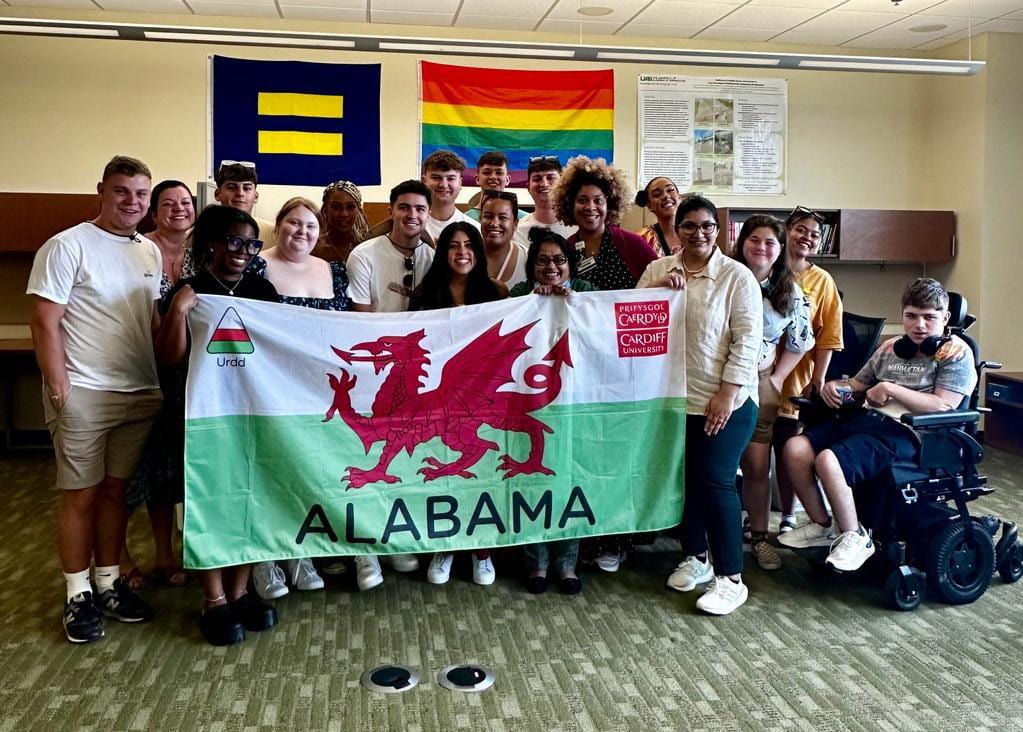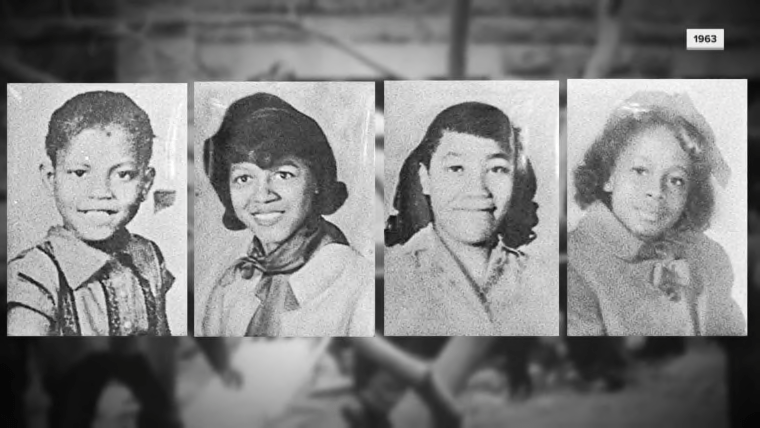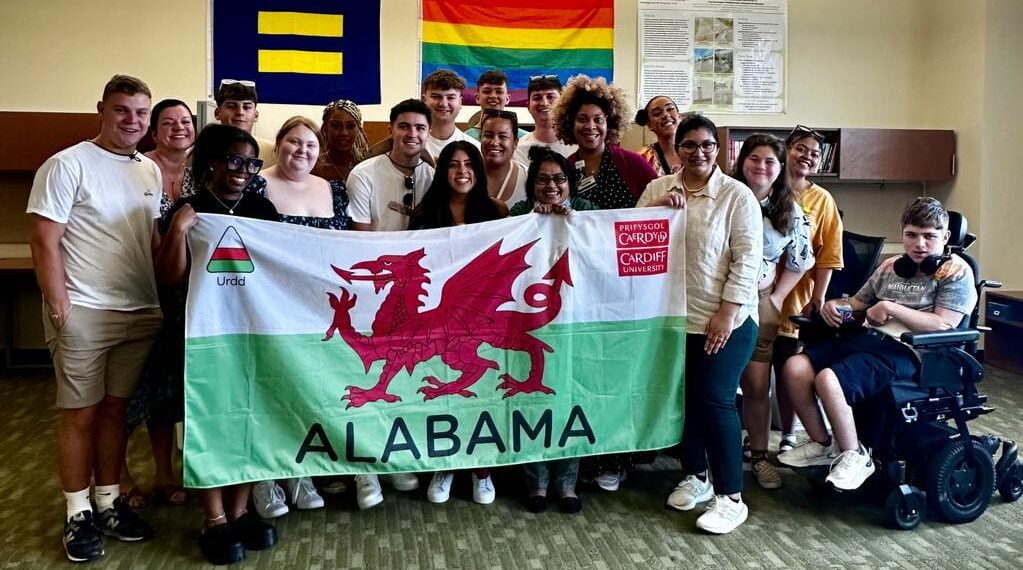[ad_1]

by Sumaira Quraishi
On September 15th, 2023, the Institute for Human Rights (IHR) at the University of Alabama at Birmingham (UAB) and the Urdd, a Welsh youth organization, spent an afternoon together exploring human rights initiatives in Birmingham and the history of the Civil Rights Movement.
Dr. Tina Kempin Reuter, Director of the IHR, made opening remarks welcoming the Urdd delegation to UAB and facilitated introductions between the Urdd and members of the IHR team. Dr. Reuter then spoke on how the IHR is raising awareness of and advocating for human rights by making safe spaces to have open dialogues and hosting human rights advocacy conferences. Ms. Siân Lewis, Chief Executive of the Urdd, explained that the Urdd is the largest youth organization in the world and has been active for over 100 years. The Urdd’s primary objective is spreading a peace and goodwill message, with the focus this year being on anti-racism. The Urdd also aims to share the Welsh language and culture with others while learning about other languages and cultures around the world. The Urdd distinguishes itself in its anti-racism efforts through its “Galw Nhw Allan” (“Call Them Out”) motto, which encapsulates the Urdd’s desire to take substantive action against racism. In a video shown at the event, student leaders from the Urdd are shown describing the need to dismantle systemic racism through education to show the beauty and unity people’s differences bring to our communities.
Two members of IHR led the group in a privilege walk, an activity that involves asking participants to line up side-by-side with their eyes closed and take a step forward if they agree with certain statements, or take a step back if they agree with others. Examples of the statements read included “Take a step back if someone in your immediate family is addicted to alcohol or drugs,” “Take a step forward if you see people with your skin color in your local government,” and “Take a step back if you have ever had to skip a meal or multiple meals due to your financial situation.” At the end of the exercise, every person of color from the group was at the back of the room, and every non-person of color from the group was in the middle or front of the room. This exercise was done to highlight the various advantages and obstacles faced by people around the world and fostered a great discussion about diversity and inclusion amongst the IHR and the Urdd.
At the beginning of the meeting, members of the IHR handed out pieces of numbered paper to everyone in the meeting room. People with even numbers received a leaf to pin to their chest and people with odd numbers received a ribbon. After the privilege walk, everyone was asked to find a seat at tables decorated with pumpkins if they drew an odd number or tables decorated with scarecrows if they drew an even number. A short video on Jane Elliott’s “Blue Eyes/Brown Eyes” experiment was shown where Ms. Elliott divided her class by eye color and favored blue-eyed children one day, and brown-eyed children the next, giving each favored group more praise and privileges over the other group. The class soon adopted hateful and derogatory views of the out-group, bullying members of the unfavored group which was distinguished by brown collars tied around their necks. To simulate this experiment, two members of the IHR went around telling people with leaves pinned to their chests to get second helpings of lunch and engaging members of that group in conversation. Contrastly, the two IHR members ignored people with ribbons pinned to their chests and neglected to mention that those with ribbons could go and get second helpings of the food being served. The experiment was revealed after lunch was finished, to the surprise of the room which had no idea the simulation was being carried out. A short discussion followed on how discrimination affects people in real life and the unique challenges faced by people daily due to discrimination.
A tour of the IHR office space followed lunch and the Urdd delegation kindly presented IHR with a flag of Wales, a Cardiff University dragon plush, and Cardiff University silk scarves. Thank you to the Urdd for the thoughtful gifts!
The final event of the day was a screening of Four Little Girls directed by Spike Lee and a Q&A session with Michele Forman, Director of the Media Studies Program at UAB, who helped with the production of Four Little Girls. The film follows the events of the Civil Rights Movement in Birmingham, Alabama, and includes interviews with the families of the children killed in the 16th Street Baptist Church bombing in 1963. In the Q&A session after the showing, Ms. Forman described how every aspect of the film needed to answer the question “How does it help us understand what happened to the girls that day?”. A particularly impactful statement from Ms. Forman when asked what the rationale for using post-mortem photographs of the four children killed in the bombing in the film was that the destruction and exploitation of the Black body are used too much in media, but it was needed in the film to show that we will not move on from this tragedy and will not forget “what racism comes to bear on the Black body.” Thank you to Michele Forman for facilitating an insightful discussion of the film and the Civil Rights Movement!

The IHR is grateful to have had the opportunity to connect with the Urdd and looks forward to future collaborations!
Watch the full Peace and Goodwill message video here.
[ad_2]




